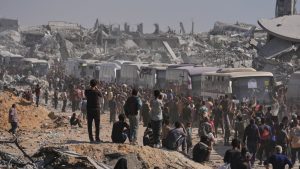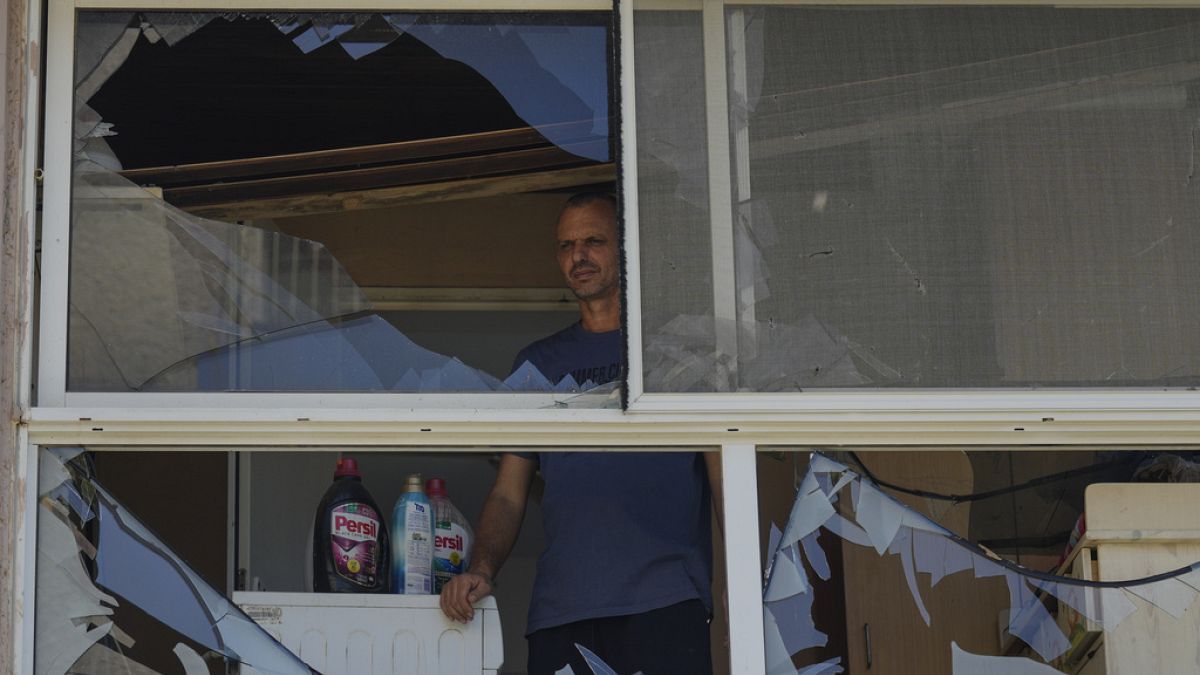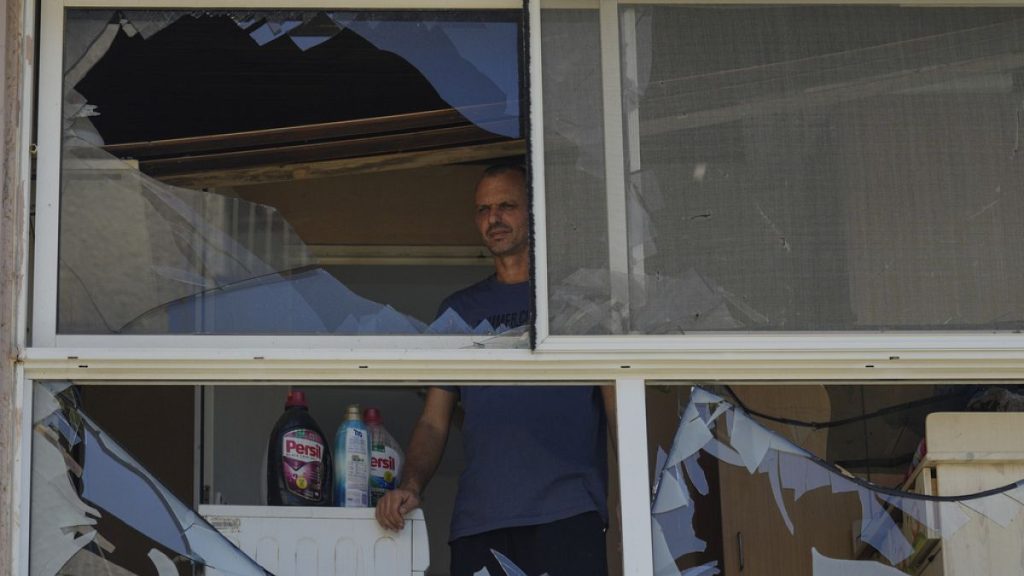Government watchdog Matanyahu Englman has placed major responsibility on Israeli Prime Minister Benjamin Netanyahu for the reconstruction file, explaining that the government delayed several months in launching these operations despite signing a ceasefire agreement with Lebanon in November 2024, and the pace of work in many areas remains far behind the scheduled timeline.
Although most of the displaced Israelis have returned to northern villages, the issue of confronting Hezbollah and the government’s handling of residents in those areas from October 8, 2023, to November 27, 2024, remains strongly present in political and media scenes.
The issue is no longer seen merely as a measure to evaluate government performance over a specific period but is viewed by some as reflecting explicit neglect of border communities and deliberate marginalization of their issues.
Englman accused successive governments and prime ministers, notably Benjamin Netanyahu, as well as Defense Ministers Yoav Galant and Israel Katz, and Finance Minister Bezalel Smotrich, of ignoring the needs of northern residents before, during, and after exposure to Hezbollah fire.
During most of the war, between 60,000 and 80,000 northern residents were evacuated from their villages, and large parts of villages such as Metula and Manara were destroyed.
Hezbollah sought to exploit this front it opened after Hamas’s attack on October 7, 2023, called the “Al-Aqsa Flood,” to pressure the Israeli government and draw the army into a war of attrition believed to shorten the Gaza war’s duration.
The party benefited during this period from the fragility of security preparations for northern villages’ residents, noting that Hezbollah’s threat — according to Israeli estimates — exceeded that of Hamas, yet those villages only had a limited number of safe and fortified rooms.
Englman holds Netanyahu most responsible in this context, pointing out that despite signing the ceasefire agreement with Lebanon in November 2024, the government took several months to start reconstruction operations, and these operations in many communities remain significantly delayed from the expected schedule.
The watchdog did not exclude former prime ministers Naftali Bennett (June 2021 – June 2022) and Yair Lapid (June 2022 – December 2022) from his criticism.
He also held responsible several defense ministers who served during this period, including Yoav Galant, who held the position from January 2023 to November 2024.
The watchdog accused Finance Minister Bezalel Smotrich of neglecting his role in addressing northern residents’ issues, which the prime minister assigned to him, confirming that he rarely held work team meetings and seldom tried to implement any of his initiatives.
Smotrich claimed he faced many legal and bureaucratic obstacles that hindered his work, leaving him lacking sufficient authority to address the situation properly.
Media reports indicated that 95% of students from northern areas returned to their villages with the start of the school year in Israel on Monday.
Northern region army commander Rafi Milo addressed a message to students in those areas, saying: “Dear children, you are the heroes of tomorrow, you are the generation of the future… On my behalf and on behalf of every soldier under my command, we will continue to watch over your security and safety and ensure the current situation is not harmed. Returning home and starting the school year, even amid war, are sources of pride and honor. They are proof of strength, resilience, and an indomitable spirit.”
On the other hand, Hezbollah is under intense pressure both internally and externally, especially after the Lebanese government’s decision in early August 2024 to disarm it.
Media close to the party indicated it might retract its commitments related to withdrawing beyond the Litani River line, one of the basic conditions of the ceasefire agreement based on UN Security Council Resolution 1701, if Israel continues violating the ceasefire and fails to provide effective security guarantees to Lebanon as promised by US envoy Thomas Barrack.














Recommended for you
Exhibition City Completes About 80% of Preparations for the Damascus International Fair Launch
Talib Al-Rifai Chronicles Kuwaiti Art Heritage in "Doukhi.. Tasaseem Al-Saba"
Unified Admission Applications Start Tuesday with 640 Students to be Accepted in Medicine
Egypt Post: We Have Over 10 Million Customers in Savings Accounts and Offer Daily, Monthly, and Annual Returns
His Highness Sheikh Isa bin Salman bin Hamad Al Khalifa Receives the United States Ambassador to the Kingdom of Bahrain
Al-Jaghbeer: The Industrial Sector Leads Economic Growth